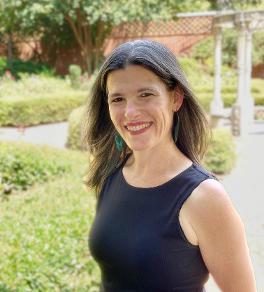The Ladies
creative nonfiction by Laura Leigh Morris
"I went on a mission trip there,” a colleague said upon learning I was from West Virginia. We’d just met, so I bit my tongue, didn’t comment on the savior complex involved in that statement. Before I could find a proper response, she added, “I saw a group of ladies at the courthouse one day. They were shaving their heads in protest.”
“What were they protesting?” someone else asked.
We were on lunch break two days into a week-long training seminar in a basement room that alternated between too hot and too cold. At the end of each day, we all ran into the sunlight, but from 9:00 until 4:00, we squinted below overhead fluorescents and discussed how best to teach college writing.
“I don’t know. Something to do with coal mines,” the first woman said.
“Maybe mountaintop removal,” I offered.
“Maybe. Or something about mine safety.” She shrugged, didn’t seem to know much about the place she was so eager to help. I wondered what she’d done there but didn’t want to encourage her.
Instead, I pictured the women she described: They set up a metal stool on a plaza in front of the courthouse. Each took a turn on the stool, stone-faced and straight-backed as her friends sheared graying locks with a battery-operated razor. Women whose feet were tired from manning registers at the Dollar General Store. Women whose children ran around the edges of the protest, no idea what they were witnessing. Women who still had dinner to cook. Heavy-breasted women in t-shirts that tented over their stomachs. Women who hadn’t known poverty but knew what it was to live in a place rife with it.
My colleague shrugged. “I’m not sure what they expected to get from shaving their heads.”
“Sometimes the protest itself is enough,” I said. I imagined these women standing up against contaminated ground water, creeks turned orange with runoff, cracked foundations in houses built over abandoned tunnels. A group of missionaries gazing up at them, curious if confused. “West Virginia has a long history of protest. Violent protest,” I added. “The battle for Blair Mountain.”
“I didn’t know,” she said.
I kept going:
“We’re a proud union state.”
“We don’t control our own resources.”
“We’re mostly owned by people who’ve never lived there.”
She stared at me, nodded, said nothing.
I don’t know what I hoped to accomplish. I haven’t lived in West Virginia in twenty years. When I visit, it both does and does not feel like home. Those who still have jobs in the coalmines cling to them tightly. I can’t imagine the women I see buying limp, overpriced vegetables at the discount grocery shaving their heads outside the courthouse. They have other concerns. The buildings that used to line the banks of Buffalo Creek have burnt down, fallen down, been torn down. Most of the Victorian houses that used to anchor the downtown are in various stages of collapse, porches hanging from their fronts. Still, some have been renovated to look like San Francisco’s painted ladies. When I take my husband and kids there, I like to point them out, as though these stately homes say something about the town. “That one,” I say. “That one too.” And we gaze in awe at the ladies standing tall in all their finery.

Laura Leigh Morris is the author of The Stone Catchers: A Novel (University Press of Kentucky, 2024) and Jaws of Life: Stories (WVU Press, 2018). She's previously published short fiction in STORY Magazine, North American Review, Redivider, and other journals. This is her first creative nonfiction publication. She teaches creative writing and literature at Furman University in Greenville, South Carolina.
